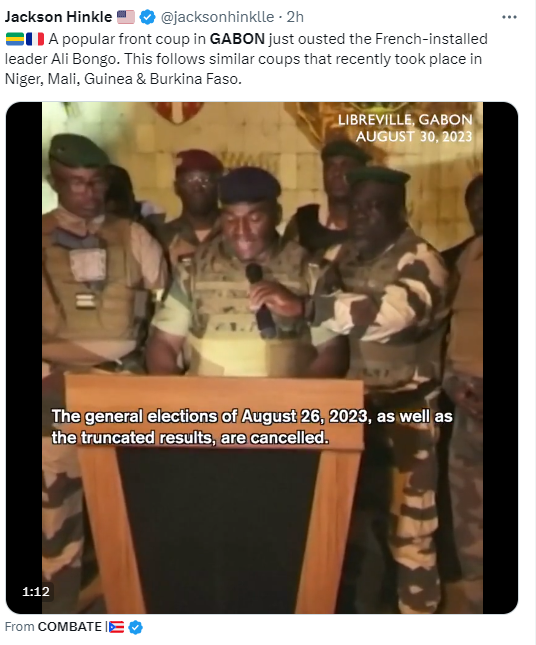In a dramatic turn of events, military officers in Gabon have announced their seizure of power, detaining President Ali Bongo Ondimba just moments after the nation's election body declared his controversial third-term victory. This development has sent shockwaves throughout the Central African nation, marking a significant shift in its political landscape.
The streets of Libreville, Gabon's capital, were filled with jubilant crowds, many of whom embraced the soldiers and celebrated what they perceived as the end of the Bongo dynasty, which has held the reins of power for over 56 years. The military intervention, however, has drawn sharp criticism from international quarters, including France, Gabon's former colonial ruler. France, which maintains a military presence in Gabon, was quick to condemn the coup.
The military's announcement came via a televised statement, where they declared the dissolution of all state institutions and the cancellation of the recent election results. A spokesperson for the coup leaders stated, "In the name of the Gabonese people ... we've decided to defend the peace by putting an end to the current regime." They further announced the formation of a new transitional body, the Committee for Transition and Restoration of Institutions. Gen. Brice Oligui Nguema, a relative of Bongo and head of the presidential guard, has been named as the leader of this interim government.
Bryce Fens Eligo Ngoma, the leader of the Republican Guard, came to the streets of the capital hours after the removal of Ali Bongo from the presidency of Gabon and was inspected by the military. The interesting thing about Gabon is that France demanded the recognition of the… pic.twitter.com/X2OX9c95H9 — Sprinter (@Sprinter99800) August 30, 2023
President Bongo's ascent to power followed the footsteps of his father in 2009. The recent election, tainted with allegations of irregularities and a lack of transparency, saw Bongo securing 64% of the votes. However, the election process was marred by an internet blackout imposed by the government, purportedly to combat misinformation. The swift arrest of President Bongo post the election results underscores the deep-seated political tensions in the country. The Bongo family's rule, dating back to 1967, has often been criticized for its alleged corruption and failure to equitably distribute the nation's oil wealth. Despite Gabon's significant oil reserves, over 30% of its population continues to live in poverty.
This coup is not an isolated incident in the region. Since 2020, West and Central Africa have witnessed eight such military takeovers, reflecting a broader trend of eroding democratic norms. Countries like Mali, Guinea, Burkina Faso, and Chad have experienced similar upheavals.
Gabon's historical ties with France have been a focal point of its foreign relations. However, in recent years, there has been growing discontent over French political and economic influence in its former colonies. This sentiment was further highlighted by a failed coup attempt in Gabon in 2019.
The unfolding situation in Gabon is a testament to the region's volatile political climate. As the world watches closely, the future of Gabon remains uncertain, with its citizens hoping for stability, prosperity, and a genuine democratic process.





